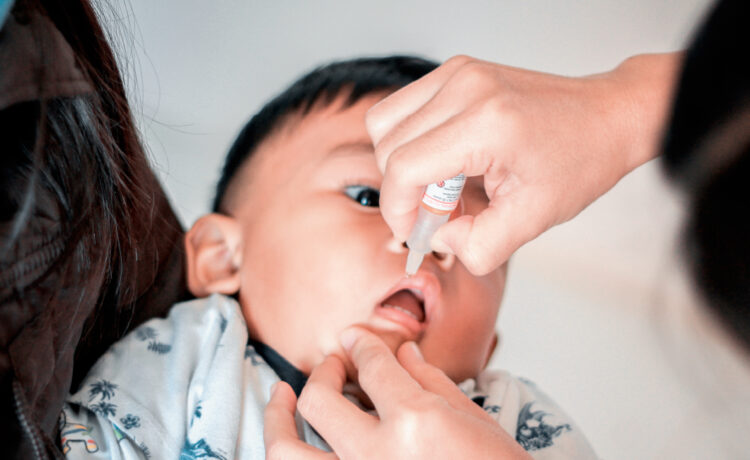As a parent, ensuring your child’s health and well-being is a top priority. One important part of that responsibility in Singapore is staying on schedule with the National Childhood Immunisation Schedule (NCIS). But what happens if you miss a vaccination appointment or if your child falls ill? Can NCIS vaccinations be delayed, and what are the consequences? This article aims to answer those questions and help parents understand how to navigate delays in NCIS childhood immunisation with confidence and care.
Understanding the NCIS and Its Importance
The NCIS outlines the NCIS vaccinations for children in Singapore from birth through childhood. These vaccines protect against serious infectious diseases such as measles, mumps, rubella, diphtheria, hepatitis B, and pneumococcal disease. Most of the vaccines under the NCIS are fully subsidised for Singaporean children when administered at polyclinics or participating CHAS GP clinics.
Vaccinations not only protect your child but also help safeguard public health by reducing the spread of disease. Following the recommended schedule ensures that children receive protection at the earliest and most vulnerable stages of their development.
Is It Safe to Delay NCIS Vaccinations?
While delays in children NCIS vaccinations are not encouraged, they are sometimes unavoidable due to illness, travel, or personal circumstances. The good news is that it’s generally safe to delay vaccines temporarily, especially in non-urgent situations. However, it is important to return to the vaccination schedule as soon as possible.
Short delays typically do not require restarting the entire vaccine series. Instead, your healthcare provider will follow a “catch-up” schedule, which ensures your child still receives all the necessary doses in the appropriate time frames. This approach helps maintain the overall effectiveness of the immunisation programme.
Reasons for Delaying Vaccination
There are a few common reasons why parents might delay a scheduled vaccination:
- Mild illness: Many parents worry that getting vaccinated while sick could worsen symptoms. In most cases, mild illnesses like a cold or low-grade fever do not interfere with vaccinations. However, for more serious conditions, your doctor might advise postponement.
- Missed appointments: Life can get busy, and sometimes appointments are accidentally missed. It’s important to reschedule as soon as possible, rather than skipping the dose entirely.
- Medical concerns: Some children may have allergies or other medical conditions that necessitate a modified or delayed vaccination plan. Your doctor will help assess and manage these cases with a personalised approach.
How to Catch Up After a Delay
If your child misses a scheduled vaccine, don’t panic. The catch-up schedule allows doctors to administer missed doses without compromising effectiveness. The timing and spacing of vaccines are key—your doctor will ensure that each dose is spaced appropriately to build a strong and lasting immune response.
For example, if a child receives the first dose of a multi-dose vaccine later than planned, the second dose can still be given after the appropriate interval. There’s no need to restart the entire series unless your child is significantly behind and has missed several vaccines over many months.
Keeping a detailed immunisation record is useful when planning catch-up doses. Bring any previous records to your doctor so they can accurately assess what’s still needed.
Risks of Prolonged Delays
While short delays are manageable, prolonged gaps in children NCIS vaccinations can put your child at risk. Some diseases, such as measles, are highly contagious and can spread quickly through communities with low vaccination coverage.
Delaying vaccinations also affects herd immunity, which protects vulnerable individuals who cannot be vaccinated due to medical reasons. Unvaccinated children may also face difficulties enrolling in preschools or childcare facilities, which often require up-to-date immunisation records.
Ultimately, the longer a child goes unprotected, the higher the risk of exposure to preventable diseases—especially during travel or outbreaks.
What Parents Should Do
If you’re worried about a delay or unsure about your child’s vaccination status, speak with your GP or polyclinic as soon as possible. Most clinics in Singapore are experienced in handling catch-up schedules and can provide clear guidance.
Use reminders, calendar alerts, or mobile apps to track upcoming vaccines and appointments. Staying informed and proactive makes it easier to stay on track and protect your child’s long-term health.
In conclusion, while children NCIS vaccinations should ideally follow the recommended schedule, minor delays are not uncommon and can be managed with proper medical guidance. By understanding the risks, following up promptly, and communicating with your healthcare provider, you can ensure your child receives the full protection they need—no matter the timeline.

